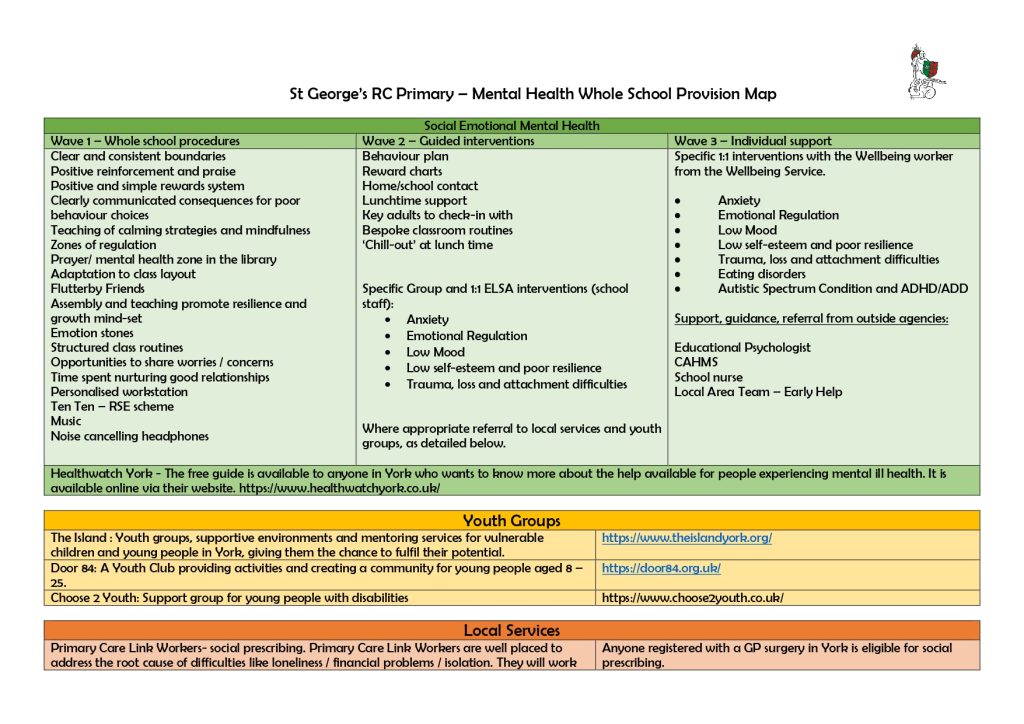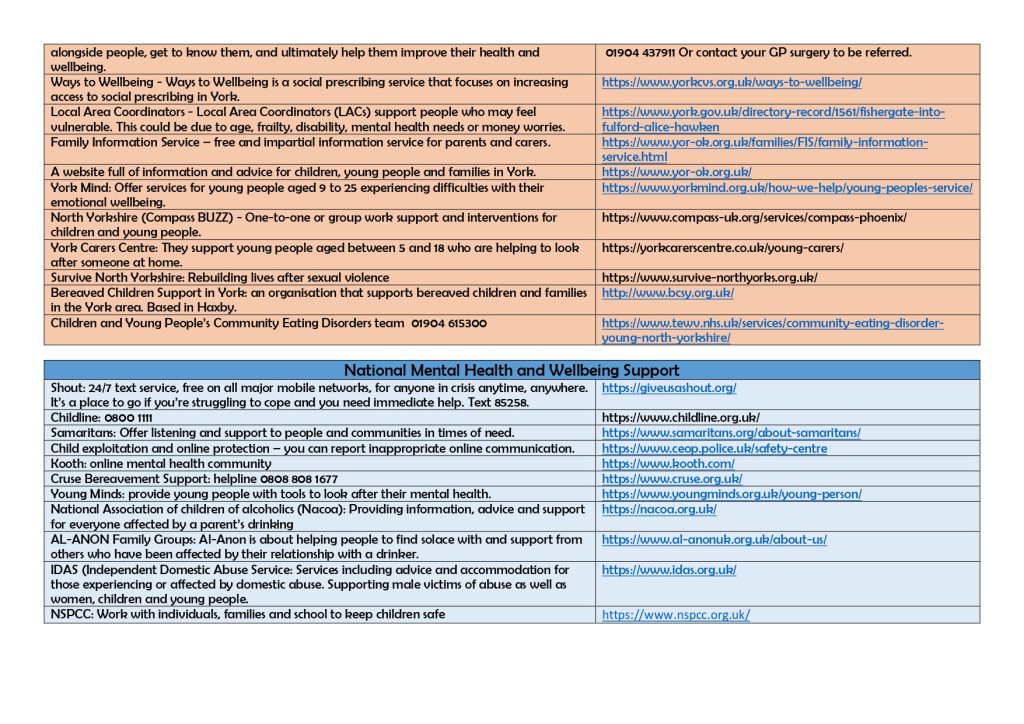Mental Health & Emotional Wellbeing
We believe in promoting positive mental health and emotional wellbeing to ensure that the school is a community where everyone feels able to thrive. Our school ethos and values underpin everything that we do.
Who has mental health?
We all have mental health – some people call this emotional health or wellbeing.
What is mental health?
The World Health Organisation defines mental health as a state of wellbeing in which every individual achieves their potential, copes with the normal stresses of life, works productively and fruitfully, and is able to make a contribution to their community. Mental health includes our emotional, psychological and social wellbeing. It affects how we think, feel and act.
Good mental health and wellbeing is just as important as good physical health. Like physical health, mental health can range across a spectrum from healthy to unwell; it can fluctuate on a daily basis and change over time.
What helps?
Things that can help keep children and young people mentally well include:
- being in good physical health, eating a balanced diet and getting regular exercise
- having time and the freedom to play, indoors and outdoors
- being part of a family that gets along well most of the time
- going to a school that looks after the wellbeing of all its pupils
- taking part in local activities for young people.
Other factors are also important, including:
- feeling loved, trusted, understood, valued and safe
- being interested in life and having opportunities to enjoy themselves
- being hopeful and optimistic
- being able to learn and having opportunities to succeed
- accepting who they are and recognising what they are good at
- having a sense of belonging in their family, school and community
- feeling they have some control over their own life
- having the strength to cope when something is wrong (resilience) and the ability to solve problems.
What happens in school?
In school, we teach children about what it means to have good mental health and wellbeing throughout our curriculum and daily practice.
Our RE and RSE curriculum focuses specifically on developing children’s social and emotional skills which can prevent poor mental health from developing and help all children cope effectively with setbacks and remain healthy. It is about helping children to understand and manage their thoughts, feelings and behaviour and build skills that help them to thrive, such as working in a team, persistence, and self-awareness.


What if my child is experiencing difficulties with their mental health and wellbeing?
Mental health doesn’t mean being happy all the time and neither does it mean avoiding stresses altogether. One of the most important ways to help your child is to listen to them and take their feelings seriously.
In many instances, children and young people’s negative feelings and worries usually pass with the support of their parents and families. It is helpful for the school to know what they are going through at these times, so that staff can be aware of the need and support this.
Coping and adjusting to setbacks are critical life skills for children, just as they are for adults, but it is important that they develop positive, rather than negative, coping skills.
If you are ever worried about your child’s mental health and wellbeing then, just as you would about any concerns that you have about their learning, come and talk to us. Sometimes children will need additional support for a short period – this may be in the form of a daily check-in with a trusted adult, time to talk through what they are feeling and support in developing ways of moving forwards with this.
Further Resources and Support
Local Area Coordinators or “LACs”
Local Area Coordinators help you stay safe, well, independent and connected to your local community by:
- helping raise awareness of available resources
- providing links to local services
- supporting people with a wide range of issues
- developing resilience and social inclusion in communities
Support from your Local Area Coordinator:
Local Area Coordinators work with individuals and families of all ages and abilities. They take time to get to know you, your family, friends, carers and your community, so they can help you to build a strong support network. St George’s RC Primary School is in the “Fishergate, Fulford and Heslington” area and you can find the contact details for all the LACs here.
York Healthwatch
You may find the resources published by York Healthwatch useful!


